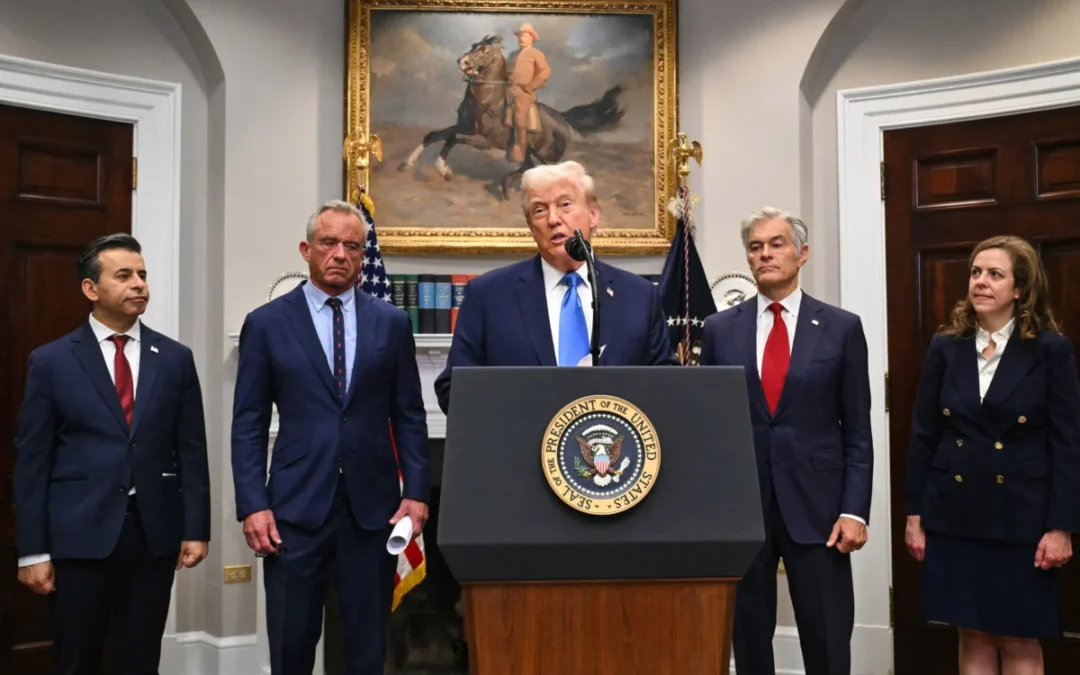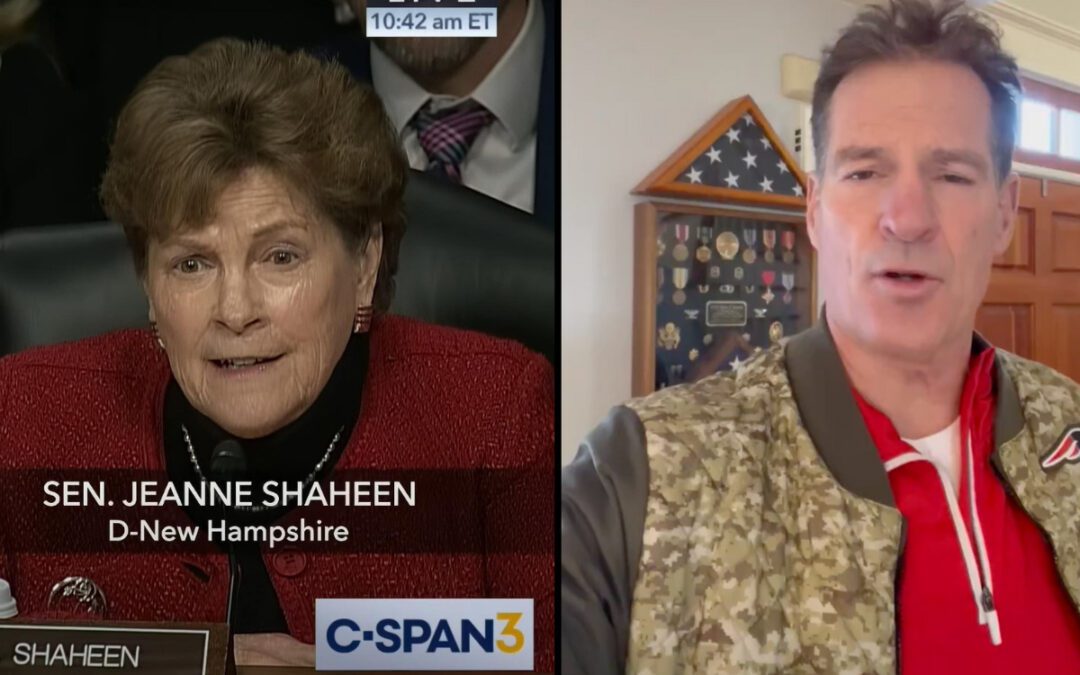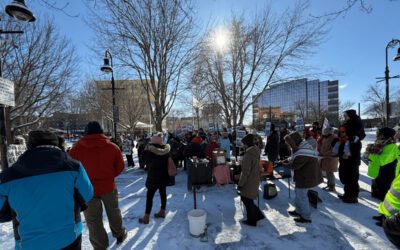
With a shutdown of the federal government looking increasingly likely, we took a look at which areas of New Hampshire will suffer the greatest impacts. From furloughed workers to stalled permits, expect ripples throughout the state economy.
Social Security and VA continue, but SBA loans, USDA housing, and national-forest services could stall. Pappas’s plan would protect military pay, not the wider local economy.
The Republican-controlled US House of Representatives and Senate have reached an impasse about how to fund the federal government, and Congress has gone on recess, giving itself less than 48 hours next week to avert a shutdown of the federal government.
The effects of a prolonged shutdown—as is expected by political observers across both parties—would ripple quickly across New Hampshire even as some core benefits keep flowing. Meanwhile, a new bipartisan bill backed by Rep. Chris Pappas aims to cushion one critical shutdown risk for military families.
Last week, Pappas helped reintroduce the bipartisan Pay Our Troops Act, to guarantee pay for service members—including the Coast Guard—during a shutdown. He framed it as ensuring families “never miss a paycheck” because of Washington gridlock. House materials describe coverage aimed at uniformed personnel, with prior versions also extending limited continuing appropriations to certain civilian roles supporting troops.
If enacted fast, it would shield many military households tied to the Seacoast economy from missed paychecks—and stabilize some local spending — even if other agencies go dark.
About 5,200 federal civilian employees based in New Hampshire would be immediately furloughed or required to work without pay until Congress passes a funding bill. With household spending cuts the squeeze on small and local businesses that rely on invoices and patronage of federal workers could be catastrophic.
The impact is especially magnified on the Seacoast, where the Portsmouth Naval Shipyard employs roughly 7,500 civilians—including about 2,900 New Hampshire residents—and where delayed federal payments to contractors can quickly affect everything from restaurants to retailers and service providers from Portsmouth to Rochester.
Social Security checks will continue, because they are considered mandatory spending, but field-office services and call centers typically slow under the Social Security Administration’s contingency plan.
Veteran health care and benefits also continue thanks to advanced appropriations, though administrative functions could be pared back during the lapse. Air travel does not stop — TSA officers and air-traffic controllers are exempted and must work—but unpaid shifts and paused FAA training can mean longer lines and delays if a shutdown drags on.
Universities and hospitals can keep drawing on existing federal grants and awards if no special approvals are needed, but new awards, peer-review panels, and help desks are usually delayed.
The Environmental Protection Agency shifts to skeleton staffing that pauses most permitting, grant administration, and many enforcement actions — friction that slows local clean-ups and municipal projects that need federal sign-off.
Money that normally flows from EPA to the state, including water and air grants to the New Hampshire Department of Environmental Services (NHDES) will take longer to approve or reimburse. Projects can keep moving if locals front the cash, but federal reimbursements are significantly delayed.
During a shutdown, new permits and renewals wait in line. Towns planning plant upgrades or industries seeking routine changes may have to delay projects or use temporary extensions. City and town halls, public works departments, school districts (waiting on funds), businesses with federal permits, and communities near cleanup sites will likely feel the impacts first.
Supplemental Nutrition Assistance Program (SNAP) benefits can continue for a time using USDA contingency tools, but historically the outlook becomes choppier in a prolonged shutdown.
When a shutdown drags on into the next benefit month, timing can become uncertain unless USDA issues special guidance. During the 2018–2019 government shutdown, USDA ordered an early load of the next month’s SNAP benefits to prevent a gap.
On average about 77,000 Granite Staters receive SNAP each month, roughly 6% of the state’s population.
During past lapses, Saint-Gaudens National Historical Park in Cornish curtailed visitor services and facilities, and the White Mountain National Forest has shut offices and many services even if trails remain accessible, reducing restrooms, ranger programs, permits, and staffed campgrounds at the peak of leaf-peeping season.
That hits towns from Conway to Lincoln that heavily depend on fall tourism, already badly strained by vanishingly fewer visitors from Canada, avoiding the country due to the Trump administration.
Ultimately, a protracted shutdown would be a significant net drag on New Hampshire’s economy.
The state risks tens of millions of dollars per week in delayed or foregone activity if a shutdown drags on, driven by missed federal pay on the Seacoast, paused payments from various federal agencies to the state and to employers, backlogged permits and research reviews, and softer fall tourism means significant economic pain for Granite Staters and history shows a meaningful share of the economy does not catch up once the government re-opens, making a prolonged shutdown a clear economic negative for the state.
Many Democrats in Congress don’t have plans to back down from a shutdown, viewing it as a way to leverage benefits protections for their constituents—particularly on health care.
Sen. Jeanne Shaheen in the meantime is pushing to pair any stopgap with health-care protections: she’s leading bicameral legislation to permanently extend the enhanced Affordable Care Act (ACA) premium tax credits, warning that if Congress lets them expire at the end of 2025, “millions of Americans could lose their health insurance and millions more will face skyrocketing premiums”—a position she reiterated as she voted against House Republicans’ continuing resolution and for a Senate Democrats’ bill to both fund the government and protect access to affordable coverage.
“The bill I’m voting for would keep the government open and lower health care costs by including my plan to permanently extend the enhanced premium tax credits… Republicans’ partisan spending plan that fails to extend the credits would kick 4 million people off their health insurance and raise premiums significantly for millions more.”
Support Our Cause
Thank you for taking the time to read our work. Before you go, we hope you'll consider supporting our values-driven journalism, which has always strived to make clear what's really at stake for New Hampshirites and our future.
Since day one, our goal here at Granite Post has always been to empower people across the state with fact-based news and information. We believe that when people are armed with knowledge about what's happening in their local, state, and federal governments—including who is working on their behalf and who is actively trying to block efforts aimed at improving the daily lives of Granite State families—they will be inspired to become civically engaged.


Dems to infuse cash into New Hampshire elections
The Democratic National Committee (DNC) announced a cash investment to boost the party’s early organizing ahead of 2025 municipal contests and the...

‘Sick to my stomach’: Trump distorts facts on autism, tylenol, and vaccines, scientists say
By Amy Maxmen Originally published September 22, 2025 Ann Bauer, a researcher who studies Tylenol and autism, felt queasy with anxiety in the weeks...

Conservative activist Charlie Kirk dies after being shot at Utah college event
OREM, Utah (AP) — Charlie Kirk, a conservative activist and close ally of President Donald Trump, was shot and killed Wednesday at a Utah college...

VIDEO: Maine Governor Defies Trump While Ayotte Does Nothing
Governor of Maine Janet Mills made major headlines for standing up to Donald Trump at the White House for his attacks on transgender youth across...

New Hampshire Senator Hassan Says “America’s Best Deserves The Best.”
Speaking on the floor of the Senate, New Hampshire Senator Maggie Hassan on Friday said that America's military deserves a leader better than former...

Trump’s embattled defense nominee sparks clear contrast in potential Shaheen/Brown Senate matchup
The embattled nomination of Pete Hegseth, the former Fox News host, as Secretary of Defense by President Donald Trump, has divided the top...




